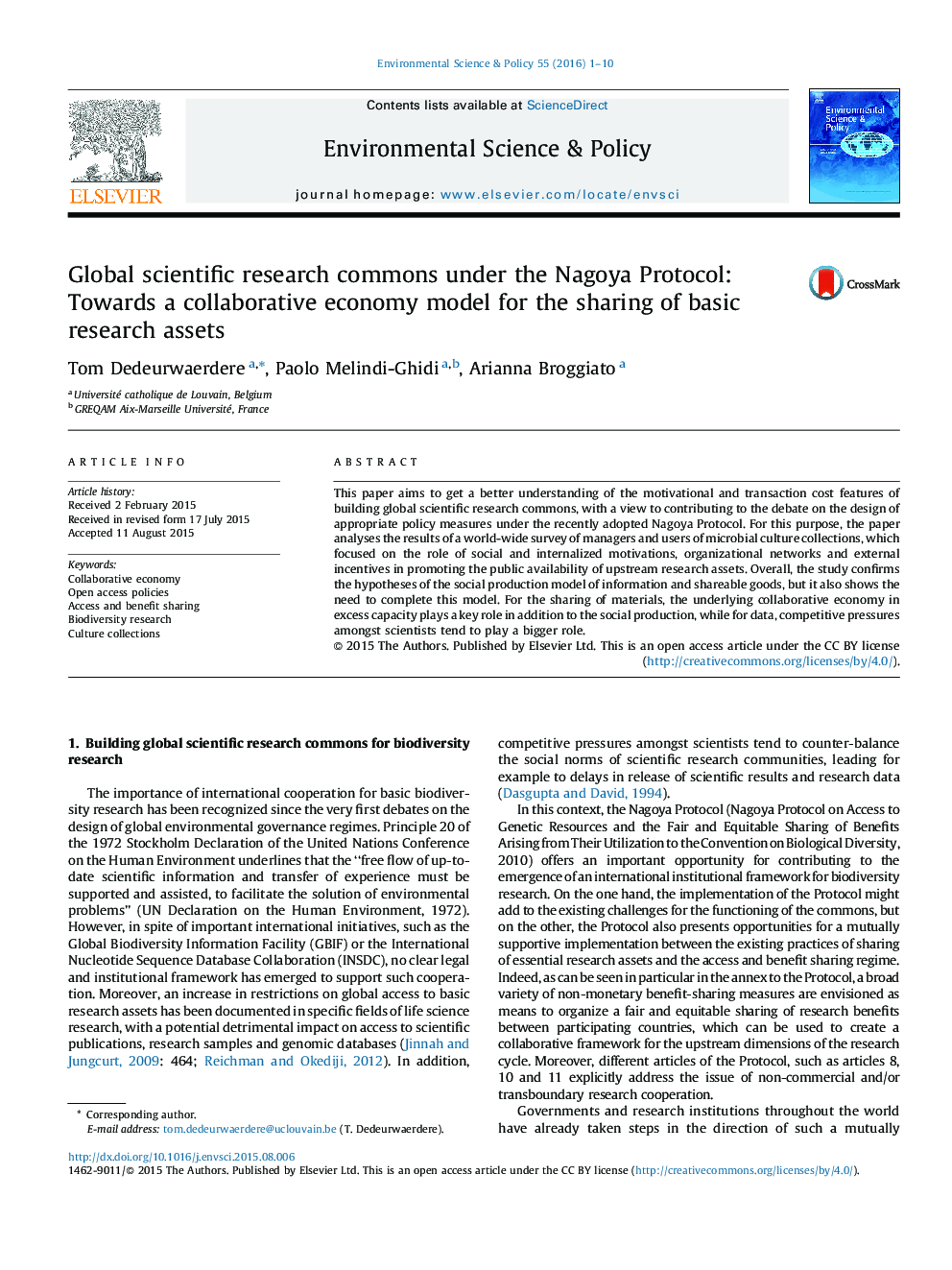| Article ID | Journal | Published Year | Pages | File Type |
|---|---|---|---|---|
| 10504546 | Environmental Science & Policy | 2016 | 10 Pages |
Abstract
This paper aims to get a better understanding of the motivational and transaction cost features of building global scientific research commons, with a view to contributing to the debate on the design of appropriate policy measures under the recently adopted Nagoya Protocol. For this purpose, the paper analyses the results of a world-wide survey of managers and users of microbial culture collections, which focused on the role of social and internalized motivations, organizational networks and external incentives in promoting the public availability of upstream research assets. Overall, the study confirms the hypotheses of the social production model of information and shareable goods, but it also shows the need to complete this model. For the sharing of materials, the underlying collaborative economy in excess capacity plays a key role in addition to the social production, while for data, competitive pressures amongst scientists tend to play a bigger role.
Related Topics
Physical Sciences and Engineering
Energy
Renewable Energy, Sustainability and the Environment
Authors
Tom Dedeurwaerdere, Paolo Melindi-Ghidi, Arianna Broggiato,
